Battling addiction is like navigating a complex labyrinth – full of twists, turns, and unexpected challenges. It's a journey that many brave souls undertake, sometimes feeling lost and alone. This guide isn't just a collection of facts; it's a beacon of hope, shedding light on a powerful tool in this journey - Dialectical Behavior Therapy (DBT) Chain Analysis.
A Closer Look at DBT Chain Analysis
Imagine DBT as a compassionate friend, guiding you through the highs and lows of addiction and emotional turmoil. At the heart of this friendship lies Chain Analysis, a technique that’s more than a clinical term. It's like a detective's magnifying glass, helping you uncover the hidden triggers and emotions leading to addictive behaviors. It’s about understanding your story, piece by piece, and gaining insights that are often overshadowed by the struggle of addiction.
Recent Insights
A 2023 study highlighted the
effectiveness of DBT in strengthening cognitive functions across various mental health conditions, including those with high levels of emotional instability, which is often a characteristic of addiction.
DBT vs. CBT
Often, when looking for solutions, we come across DBT and Cognitive Behavioral Therapy (CBT). They're like two paths in a forest, both leading to the same destination – recovery. While CBT is like a roadmap, changing negative thought patterns and behaviors, DBT is more like a compass, guiding you to accept and embrace your emotions, providing tools to navigate through the stormy waters of addiction-related distress.
Effectiveness in Bipolar Disorders
Another 2023 systematic review explored the
efficacy of DBT for mood symptoms in patients with bipolar disorders, a condition that shares several commonalities with addiction. The review found preliminary evidence suggesting DBT interventions may be effective for improving several core symptoms of bipolar disorders.
Personalizing Your Recovery Map with DBT Chain Analysis
Imagine DBT Chain Analysis as a GPS, tailored just for you.
It starts with recognizing a moment of struggle, like using substances. Then, like retracing your steps, you look back at the events, thoughts, and emotions leading up to it. It's not about judgment, but about understanding your unique journey and finding the best path forward.
Embracing Emotional Resilience Through DBT
In the world of addiction, emotions are like a turbulent sea. DBT is like learning to sail on these waters, equipping you with the skills to manage intense emotions without seeking refuge in substances. It's about becoming the captain of your emotional ship, navigating through the waves of feelings with strength and resilience.
Mindfulness Through DBT
Mindfulness in DBT isn’t just a buzzword; it's like an anchor, keeping you grounded. It’s about staying present in the moment, making informed choices, and understanding your thoughts and behaviors. It’s a practice that illuminates the path to self-awareness, helping prevent relapse and fostering a deeper connection with yourself.
The Transformative Power of DBT in Addiction Treatment
DBT has emerged as a vital tool in addiction treatment, helping individuals navigate their emotions and cravings. A deeper understanding of one's emotional and mental state is facilitated through DBT's four modules: Mindfulness, Interpersonal Effectiveness, Emotion Regulation, and Distress Tolerance. These modules collectively work towards building a more positive outlook and long-term recovery.
By engaging in
both individual and group therapy sessions, participants in DBT programs find new ways to cope with emotional stressors caused by addiction. This collaborative process, underpinned by a strong therapeutic relationship, fosters a journey toward recovery that is both supportive and transformative.
Joining Hands with American Recovery
Remember, you're not alone on this journey. If you're seeking help for addiction or curious about how DBT can be part of your recovery, American Recovery is here for you. Call us at
866-484-2502. We're more than a recovery center; we're your partners in building a brighter, substance-free future. Together, we can turn the page to a new chapter in your life, one filled with hope and healing.
Incorporating DBT Chain Analysis into your recovery story can open up a world of
insights and healthier coping strategies. It's not just about freeing yourself from the chains of addiction; it's about rediscovering your strength and writing a new narrative for your life.


